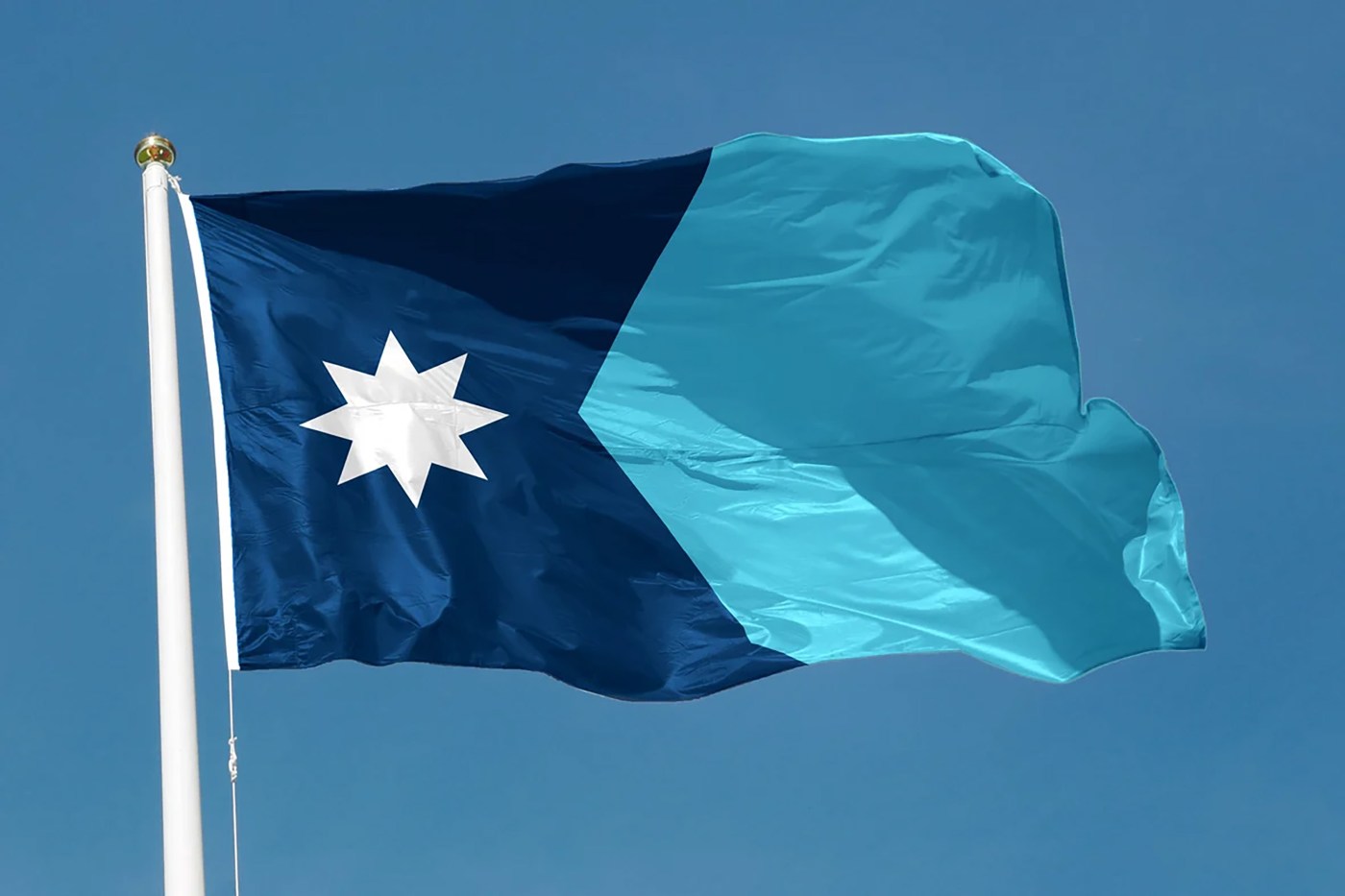
Minnesota Republican lawmakers propose bill for public vote on new state flag
Frustration with Minnesota’s new state flag continues to be a topic of concern for some Republican legislators, who plan to introduce bills to let voters decide the flag’s fate.
“We need to let the people of Minnesota have input and be heard in this process,” Sen. Steve Drazkowski, R-Mazeppa, said during a news conference at the Minnesota State Capitol on Tuesday. He said the commission tasked with changing the state’s official emblems — the flag and the state seal — failed to listen to Minnesotans.
While some Republican legislators have championed a public vote on the flag, support for the fight outside Republican circles appears fairly limited. Only a couple dozen people showed up for a planned event on the Capitol steps on Tuesday that decried the use of the new flag. The Democratic-Farmer-Labor Party, which has shown little interest in Republican qualms about the new flag, holds control of the House, Senate and governorship.
The new flag, finalized late last year by the State Emblems Redesign Commission, features a white eight-pointed star inside the state’s outline in dark blue connected to a lighter blue that represents the state’s water. The design was finalized late last year and is slated to go up around the state on May 11, the date of Minnesota’s statehood in 1858.
Drazkowski, a non-voting member of the commission, said the process to change the flag was rushed and excluded the voice of Minnesotans. The flag is based on a design submitted by a Luverne, Minn., resident.
The redesign of the flag and seal followed decades-old concerns that the emblems were racist.
Yet Rep. Mike Weiner, R-Long Prairie, said on the Capitol steps Tuesday that the new flag and seal amount to cultural genocide by metro area politicians by erasing Minnesotan history, including the history of its Indigenous population.
“They’re not giving (Indigenous people) land down here in the metro, they’re saying, ‘We don’t want Native Americans here, we don’t want them on our flag, we want you back on the reservation,’” Wiener said. “This is the most racist thing that’s happening in 2024.”
The old state seal of Minnesota depicts a white farmer tilling the soil, with a gun leaning against a stump as a Native American riding a horse toward the setting sun looks in his direction. (In 1983, state lawmakers changed the official description of the rider’s direction from west to south.)
Minnesota’s old flag, adopted in 1893, is built around the state seal. Surrounding the seal are 19 stars representing Minnesota as the 19th state to join the Union after the 13 original American colonies, and three dates: 1819 for the founding of Fort Snelling, 1858 for statehood and 1893 for the flag’s adoption.
“Thirteen people got to decide if (the flag) will change or not,” Sen. Nathan Wesenberg, R-Little Falls, said Tuesday. “It has to go to a vote, it has to be voters who decide if they want to see the flag change and if they want to change it, we have that conversation.”
Republican Party of Minnesota Chairman David Hann, along with Deputy Chairwoman Donna Bergstrom, herself a member of the Red Lake Band of Chippewa, have been vocal about their opposition to the new flag. In addition, at least five Minnesota counties have voted to formally complain about the new flag.
“As a Native American and tribal member, it’s exhausting to see Native Americans once again bearing the brunt of the short-sighted eradication of our shared history,” Bergstrom said Tuesday. “Keeping the current flag would have been a powerful acknowledgment from the current administration and the DFL that our Native contributions are valued.”
Hann previously said that he would not recognize the new flag if it goes up in May.
“We think it represents the DFL Party, not the state of Minnesota,” David Hann said in February.
While the commission’s membership included Secretary of State Steve Simon, a DFLer, many of the board members were representatives of people of color in the state, including Native Americans. The commission also included a representative from the Minnesota Historical Society and four non-voting legislators, two from the DFL and two Republicans.
Simon has previously said a statewide referendum regarding the flag would be unconstitutional.
Law enforcement agencies across the state have also voiced concern over the cost of replacing uniforms and badges that display Minnesota’s old state seal. However, the legality of local law enforcement agencies displaying that seal has been called into question and replacement costs may be a self-inflicted consequence.
Minnesota statute bars anyone but state officials, departments and agencies from using the state seal in an official capacity, according to Aaron Wittnebel, a notary public and one of the members of the State Emblems Redesign Commission. County recorders are the only county employees who are allowed to use the state seal and would be required to change it.
Wittnebel did note issues he had with the state seal during Tuesday’s press conference, saying that the new seal should have the state’s founding date added back in and that it features a non-state emblem on it, the Dakota name for Minnesota: “Mini Sotó MaKoce” which means “where the water meets the sky.”
While the official Minnesota GOP stance against the flag is rooted in preserving Minnesota’s history, others have taken a more conspiratorial tone in their opposition to the flag.
“I don’t know about you, but I am tired of everybody being offended by everything in the state, and this country. When you start changing our flag to look like that of a Somali flag, I have an issue with that. I’d like to know who else is against our Minnesota state flag being changed,” reads the “about” section for the Facebook group Minnesotans Against Changing Our State Flag & Removing History.
Despite opposition to the new flag and seal, be it historically based or xenophobic, the DFL has not given much weight to the complaints.
“Minnesota Republicans are hoping that their stunts with the state flag will distract voters from Donald Trump and their unpopular agenda — but it won’t,” said Minnesota DFL communications director Darwin Forsyth. “Banning abortion, tax cuts for the rich, and taking away free school meals from students will continue to be political losers in 2024.”
Related Articles
Biden beats long-shot challenger Dean Phillips in the congressman’s home state of Minnesota
Minnesota House passes bill aimed at clarifying police force use in schools
Minnesota’s presidential primary is underway. Here’s what to know.
Minnesota revenue forecast shows $3.7B surplus, but shortfall still projected for 2026-2027
Inver Grove Heights considers moving to 4-year mayor term, but city council not fully convinced

